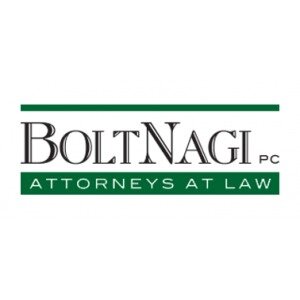Best Restructuring & Insolvency Lawyers in British Virgin Islands
Share your needs with us, get contacted by law firms.
Free. Takes 2 min.
Or refine your search by selecting a city:
List of the best lawyers in British Virgin Islands
About Restructuring & Insolvency Law in British Virgin Islands
Restructuring and insolvency law in the British Virgin Islands is an essential component of the territory’s legal framework for managing financial distress. The BVI is a leading international financial center known for its business-friendly laws, robust regulatory oversight, and efficient courts. The jurisdiction’s insolvency regime is primarily governed by the BVI Insolvency Act, 2003 and the accompanying Insolvency Rules, 2005. These laws provide structured procedures for corporate restructuring, liquidation, and creditor protection, ensuring transparency, fairness, and the preservation of value during financial recovery or failure. The system is designed both for local businesses and international companies registered in the BVI, reflecting its global reach.
Why You May Need a Lawyer
The restructuring and insolvency process in the BVI can be complex and time-sensitive. Individuals or entities may need legal assistance in several common scenarios:
- When a company is unable to pay its debts as they fall due and faces possible insolvency proceedings.
- To protect the interests of creditors, shareholders, or directors during restructuring or liquidation.
- When seeking to recover debts from insolvent entities or navigating cross-border insolvency issues.
- To evaluate or contest the appointment of liquidators or other insolvency practitioners.
- To manage disputes regarding asset realization, distributions, or claims.
- When there is suspicion of fraud, mismanagement, or wrongful trading by company directors.
- To negotiate restructurings such as schemes of arrangement or voluntary arrangements.
- To assess potential risks and liabilities associated with insolvency for company officers or investors.
Local Laws Overview
Key aspects of restructuring and insolvency law in the British Virgin Islands include:
- BVI Insolvency Act, 2003: The primary statute governing insolvency, setting out the procedures for liquidation, administration, creditor claims, and the rights of all parties involved.
- Types of Insolvency Proceedings: The BVI law recognizes voluntary liquidation, creditor driven liquidation (compulsory), and restructuring processes such as schemes of arrangement and company voluntary arrangements.
- Cross-Border Insolvency: The BVI has adopted provisions reflecting the UNCITRAL Model Law on Cross-Border Insolvency, facilitating cooperation with foreign courts and insolvency practitioners.
- Role of Insolvency Practitioners: Licensed insolvency practitioners must be appointed to manage formal insolvency processes. Their role is to realize assets, settle claims, and ensure compliance with legal requirements.
- Creditor Protections: The law provides for creditor meetings, claim verification, and the possibility to challenge transactions or the conduct of company directors.
- Powers of the Court: The High Court of the Eastern Caribbean Supreme Court in the BVI has significant powers to supervise insolvency proceedings, make orders, and appoint office holders.
- Director and Officer Duties: Company directors are expected to act in the company’s best interests and may be personally liable for wrongful conduct in the event of insolvency.
Frequently Asked Questions
What is the difference between restructuring and insolvency?
Restructuring refers to processes aimed at preserving a company’s business, assets, and value, often through negotiation and reorganization. Insolvency is a financial state where a company cannot pay its debts, often leading to formal proceedings like liquidation.
Who can initiate insolvency proceedings in the British Virgin Islands?
Insolvency proceedings may be initiated by the company itself (voluntary liquidation) or by creditors (compulsory liquidation), under court supervision.
How long do insolvency or liquidation proceedings typically take?
The duration varies depending on the complexity of the company’s affairs, the number of creditors, and the assets involved. Proceedings can last from several months to several years.
Can directors be held personally liable during insolvency?
Yes, if directors are found to have acted fraudulently, traded wrongfully, or failed in their fiduciary duties, they may become personally liable for company debts or face penalties.
Are foreign creditors protected under BVI insolvency law?
Yes, BVI law provides for fair treatment of both local and foreign creditors, including recognition of foreign court orders in many cases.
What is a scheme of arrangement?
A scheme of arrangement is a court-supervised compromise between a company and its creditors or shareholders to restructure the company’s debt or share capital.
What is the priority of claims in a BVI insolvency?
Claims are settled in a specific order: generally secured creditors, followed by preferential creditors, unsecured creditors, and then shareholders.
Can insolvency proceedings in the BVI affect assets held in other countries?
The BVI’s adoption of cross-border insolvency provisions allows for coordination with foreign courts and may affect assets elsewhere, though local law in those countries will also apply.
How are disputes in insolvency matters resolved?
Most disputes are resolved by application to the High Court of the Eastern Caribbean Supreme Court sitting in the BVI, which has broad powers to adjudicate insolvency matters.
What are the first steps if a company faces financial distress in the BVI?
Companies should seek legal advice immediately to understand their options, potential liabilities, and to pursue restructuring, negotiating with creditors, or, if necessary, preparing for formal insolvency proceedings.
Additional Resources
If you need more information or assistance, the following resources can be helpful:
- BVI Financial Services Commission: The regulatory body overseeing company registration and insolvency practitioners.
- BVI Business Companies Registry: For company and liquidation records.
- Eastern Caribbean Supreme Court (BVI Commercial Division): The court that deals with insolvency and commercial matters.
- Licensed Insolvency Practitioners: Professionals accredited in the BVI to act in formal insolvency proceedings and restructuring.
- The BVI Insolvency Act and Insolvency Rules: Key legal texts governing the process.
- Local legal and accounting firms specializing in insolvency: Many have expertise providing tailored advice.
Next Steps
If you or your company are facing financial difficulties or need guidance on restructuring and insolvency in the British Virgin Islands, consider taking these next steps:
- Consult with a BVI-based lawyer who specializes in insolvency and restructuring for an initial assessment of your situation.
- Organize your financial records, contracts, and communication with creditors to assist in the legal process.
- Engage with licensed insolvency practitioners if formal proceedings are anticipated or required.
- Act promptly, as early intervention often preserves more options and protects your interests.
- Stay informed about the relevant laws and regulatory updates to ensure compliance throughout the process.
Lawzana helps you find the best lawyers and law firms in British Virgin Islands through a curated and pre-screened list of qualified legal professionals. Our platform offers rankings and detailed profiles of attorneys and law firms, allowing you to compare based on practice areas, including Restructuring & Insolvency, experience, and client feedback.
Each profile includes a description of the firm's areas of practice, client reviews, team members and partners, year of establishment, spoken languages, office locations, contact information, social media presence, and any published articles or resources. Most firms on our platform speak English and are experienced in both local and international legal matters.
Get a quote from top-rated law firms in British Virgin Islands — quickly, securely, and without unnecessary hassle.
Disclaimer:
The information provided on this page is for general informational purposes only and does not constitute legal advice. While we strive to ensure the accuracy and relevance of the content, legal information may change over time, and interpretations of the law can vary. You should always consult with a qualified legal professional for advice specific to your situation.
We disclaim all liability for actions taken or not taken based on the content of this page. If you believe any information is incorrect or outdated, please contact us, and we will review and update it where appropriate.
Browse restructuring & insolvency law firms by city in British Virgin Islands
Refine your search by selecting a city.














